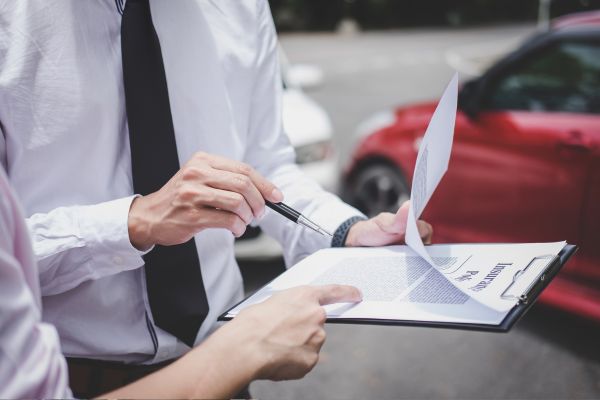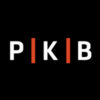
Navigating Vehicle Damage Claims: A Comprehensive Guide
In the aftermath of an auto accident, vehicle owners are often faced with a maze of decisions concerning the repair or replacement of their damaged vehicle. Understanding the ins and outs of insurance coverage can be the key to a smooth recovery process. This article aims to demystify the steps involved in pursuing a claim for vehicle damages, with a focus on leveraging Collision Coverage and understanding the role of Property Damage Liability Coverage (PDL) in Florida.
Understanding Collision Coverage
Collision Coverage, though not a legal requirement in Florida, is a critical safety net for drivers. This type of insurance comes to the rescue when you find yourself entangled in a truck accident, especially if the other party is uninsured or underinsured. Opting for Collision Coverage ensures that you can claim compensation for your damaged vehicle through your insurance provider, bypassing the complexities of dealing with the at-fault party’s insurance. To verify your coverage status or to enhance your policy, a consultation with a seasoned attorney can provide clarity and peace of mind.
The Essentials of Property Damage Liability Coverage (PDL)
In Florida, PDL is a non-negotiable requirement for all drivers, setting a minimum coverage limit of $10,000. This coverage plays a pivotal role when you’re involved in an accident with a commercial vehicle, such as a tractor-trailer. PDL is designed to cover the cost of damages your vehicle inflicts on another’s property in the unfortunate event of an accident. Understanding the scope and limitations of PDL can significantly influence the outcome of your damage claim.
Deciding on Repairs or Replacement
The decision to repair, replace, or reimburse for a damaged vehicle rests with the insurance company. They weigh the cost implications of each option, often opting for the most economical route. The Actual Cash Value (ACV) of your vehicle, or its “fair market value” prior to the accident, becomes a crucial figure in this equation. Insurance companies might declare a vehicle a total loss if repair costs approach 80% of the vehicle’s ACV, a standard practice aimed at cost-efficiency but one that might not always align with the vehicle owner’s expectations.
Fair Market Value Calculation
Determining the fair market value of a vehicle involves a careful analysis of current market trends and comparable sales. This valuation is essential for ensuring that you receive a fair compensation amount, reflective of your vehicle’s worth immediately before the accident. It’s important to note that this value might differ from standard industry guides like the Blue Book, and in cases of financed vehicles, might result in a financial shortfall, or being “upside down” on your loan.
The Role of Used Parts in Vehicle Repair
Insurance providers are tasked with restoring your vehicle to its pre-accident condition, which may involve the use of refurbished or aftermarket parts. The goal is to achieve like-for-like replacement, ensuring functionality without necessarily upgrading to newer parts at the insurer’s expense. This practice helps keep repair costs in check but might not always meet the vehicle owner’s expectations for new parts.
Choosing Your Repair Shop
The right to select a repair shop lies with the vehicle owner, although the insurance company might suggest preferred providers. It’s essential to choose a licensed and reputable shop to ensure quality repairs. The insurance company’s involvement typically extends to assessing repair costs, with the aim of facilitating a seamless repair process.
Rental Car Coverage During Repairs
The responsibility for providing a rental car during the repair period generally falls on the at-fault party. However, the logistics of this arrangement can vary, with some scenarios requiring you to front the cost, to be reimbursed later by the at-fault party’s insurer.
Legal Assistance in Auto Accident Claims
For those navigating the complexities of auto accident claims and vehicle repairs, legal advice can be invaluable. Consulting with experienced attorneys can provide insights into the best course of action for your specific situation, ensuring that you are adequately compensated and informed of all available options. Legal professionals are adept at dealing with insurance companies, striving to secure the most favorable outcomes for their clients.
In conclusion, understanding the nuances of Collision Coverage, PDL, and the claims process is crucial for anyone involved in an auto accident in Florida. By arming yourself with knowledge and seeking professional advice, you can navigate the aftermath of an accident with confidence and clarity.
Still have questions, contact our office today for a free consultation!
Read More Here :
- How do I pursue a claim for damages to my vehicle in Florida?
- Involved in an automobile accident? What should you do?
- My vehicle has been repaired, BUT now it isn’t worth as much! Is there anything I can do?
- What about damage to my vehicle?
- What if a member of my family dies as a result of an auto accident with a tractor-trailer?
- What is a Combined Single Limit (CSL) policy?
- What is automobile negligence?
- What is Bodily Injury Coverage?
- What is Commercial Liability Coverage?
- What is mandatory insurance coverage in the State of Florida?
- What is Medical Payment Coverage or MedPay?
- What is Personal Injury Protection? (PIP)
- What is the Florida “No Fault” Law?
- What is Uninsured/Underinsured Motorist Coverage (UM)?
- What makes an accident with a tractor trailer different than a regular automobile accident?
- Who is going to pay for your medical bills?
- How long do I have to file a lawsuit after a commercial truck accident in Florida?
- What are the common causes of commercial truck accidents and how does it affect my case?
- Can I seek compensation in Florida if I was partially at fault in the trucking accident?
- How is liability determined in a commercial trucking accident in Florida?
- What types of compensation are available in a commercial truck accident case in Florida?
- How do federal and state regulations impact a commercial trucking accident claim?
- What should I do if the trucking company or their insurance contacts me after the accident?
- How can a Florida attorney help me in a commercial trucking accident case?
- What evidence is crucial for proving fault in a commercial truck accident in Florida?
- Are there specific challenges in pursuing a claim in Florida against a commercial trucking company compared to a regular automobile accident claim?
